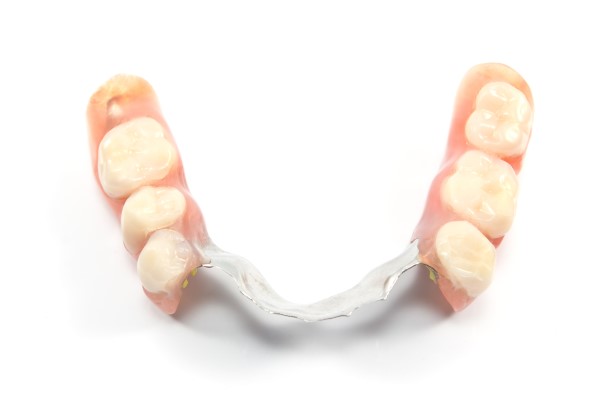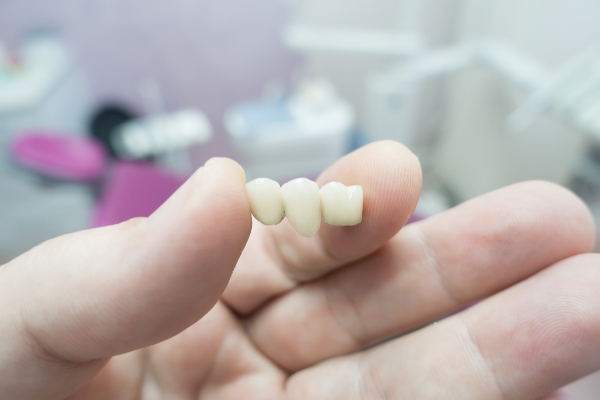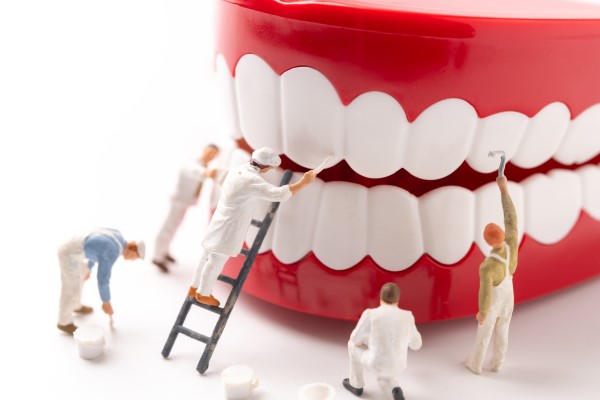Partial Dentures vs Full Dentures Explained: What May be Recommended for You?

Complete or partial dentures are just some of the options available for replacing lost teeth. Full or partial tooth loss, if not restored, affects a person’s image and puts them at the risk of nutritional disorders and challenges with regular dental functions. Dentures have been used for many decades and are available in different varieties. Continue reading to learn more about denture options and what the dentist might recommend.
Partial dentures
Sometimes called partials, partial dentures are a removable denture variant. Partials are often recommended for people who still have many healthy teeth on their jaw, usually because it is inadvisable to remove natural teeth that are still functional. Some people confuse bridges and partials and sometimes use them interchangeably, but they are different. Partial dentures are removable while fixed bridges are held permanently in place by crowns placed over two natural, adjacent teeth. Partials are fabricated from an acrylic metal frame that is fitted with clasps that connect to existing teeth.
Complete dentures
Complete dentures or full dentures are usually recommended for people who have lost most or all their natural teeth. Traditional full dentures can be fitted over the upper or lower teeth. If there are existing teeth on the jaw and the patient wants them gone, the dentist will perform the required tooth extraction procedure before proceeding with the placement of full dentures.
How dentures work
Full or partial dentures have a gum-looking base created from plastic resin, which sits over the remaining bone ridge that once supported the teeth. The prosthetic teeth attached to this base are customized to look and function like natural teeth. Dentures stay in position mainly through the suction created by the close fit over the alveolar ridges – so it is necessary that the dentures fit properly. Dentures placed in the upper jaw receive additional support from the large surface area of the mouth’s roof (palate), which makes it more stable.
It may take some time to get used to talking and eating with dentures as the device sets into the position previously occupied by the teeth. Gradually, the nerves, ligaments and muscles will adapt to the device to ensure natural oral functions.
Making and fitting the dentures
First, the dentist will make an impression of the alveolar ridges on the lower and upper jaw. The denture base is created using the mold in a dental lab. The dentist will work together with the lab technician to create a suitably sized and proper-fitting denture. The prosthetic teeth will be tooth-colored to ensure a natural-looking smile.
To ensure normal dental functions like speech and eating, it is necessary to create a bite balance. This means that the lower and upper dentures must align and stabilize each other properly. The dentist will check the structure and function of the denture to ensure patients can use them comfortably.
In conclusion
The choice between partial dentures and full dentures depends on the number of missing teeth. The dentist will perform the necessary evaluation to know which is more suited for the situation. Book an appointment with the dental office to get started.
Request an appointment here: https://brimhalldentalgroup.com or call Brimhall Dental Group at (661) 249-1122 for an appointment in our Bakersfield office.
Check out what others are saying about our dental services on Yelp: Dentures and Partial Dentures in Bakersfield, CA.
Recent Posts
Removable artificial teeth are called dentures. They replace permanent teeth lost or extracted due to damage or extensive decay. False teeth are a traditional dental restoration method that has been around for centuries and is still effective today. However, there are things you need to know about them before you start wearing them.Your dentist can…
A set of dentures is a tooth replacement solution for people who have lost one or more teeth. It enhances the look of teeth while also restoring their function. Read on to learn more about how dentures are used for restoring lost teeth and gums.The number of missing teeth on the jaw determines the sort…
Living with dentures can make life easier. They are aesthetically pleasing, improve your chewing efficiency and can help you speak like normal once more. A well-fitting denture may make your life convenient. However, there are a few things to remember about living with the replacement teeth.For starters, you should try to avoid sleeping in them…
Dentures provide a way for people missing teeth to eat, speak and smile as they used to. In fact, according to the American College of Prosthodontists, 90% of people without teeth have some form of dental prosthetics. However, many health concerns arise when these do not fit correctly in the mouth.There are a few common…


